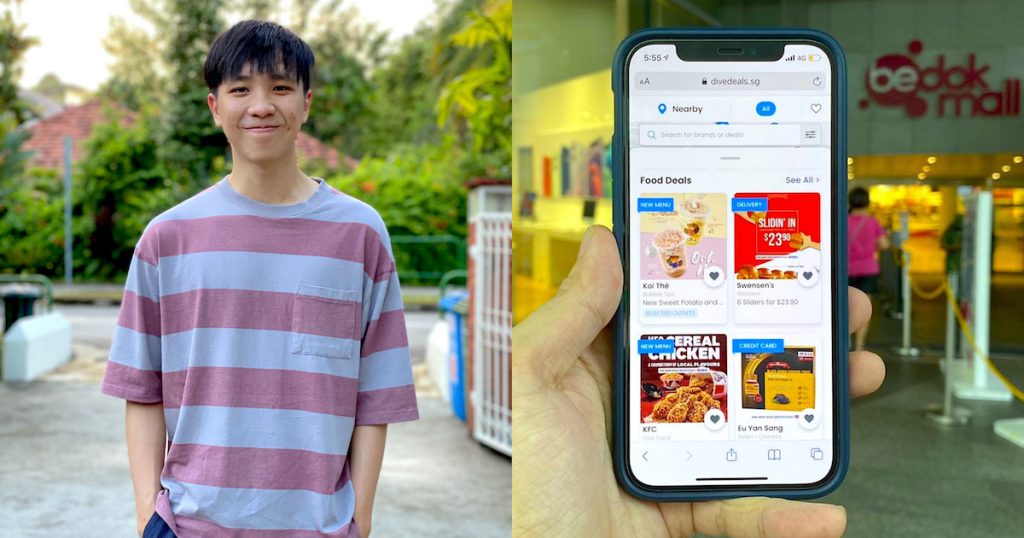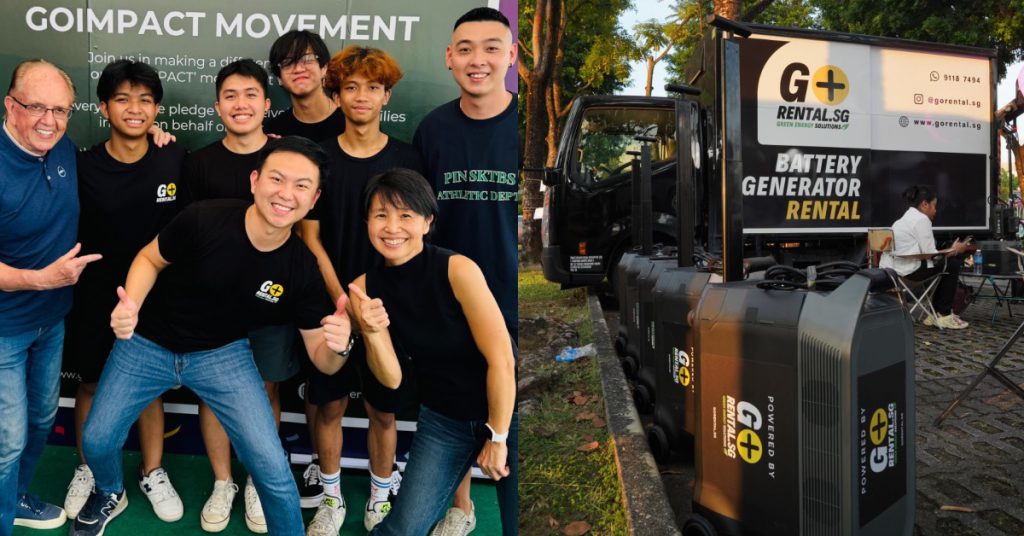As we step into the new year of 2022, I thought of documenting my journey of building a tech startup in the vibrant, yet competitive startup landscape in Singapore.
My name is Gabriel Sze, and I am currently a Year 4 student in Nanyang Technological University (NTU) enrolled in the Renaissance Engineering Programme. I am also the student founder of Dive Deals, a mobile-optimised web-based deal discovery platform to bridge the online-to-offline consumer journey.
The journey of a student entrepreneur is really challenging. It can be a really daunting task to start a company and build a solution for tens of thousands of users.
Limited experience in developing software product, industry experience, and a small network are some of the early struggles that I faced.
However, as a student, I feel challenged to grow beyond my boundaries and harness these opportunities to further grow both hard and soft skillsets. More importantly, this journey has allowed me to build meaning and purpose into my product.
In this article, I want to share several personal experiences and takeaways in building a modern tech startup.
1. Finding a reasonable pain point
Firstly, I found something that was reasonable for me to build on my own. One of my greatest challenges in navigating this space was finding the most cutting-edge technology to apply, finding the most talented team, or looking for the “perfect idea”.
While it is important to be ambitious, it is essential to first identify a problem and be able to start solving the problem as soon as possible.
In fact, running a startup wasn’t my first intention. Solving a problem was.
Understanding the limitations of my position as a student founder, I started with one of the greatest personal problem statements I had and strived to build a better product for myself and the people around me who shared similar thoughts.
One of the greatest pain points I had in my life was saving money through finding good deals and promotions in Singapore. This has always been a big issue for me since I disliked installing too many mobile applications on my phone and preferred to search the web instead.
I landed on many deal aggregator sites with poor user interfaces and experiences and often struggled to find comprehensive information as there were too many sites and social media channels to follow and find the most relevant deals.

The information was highly unstructured which was a huge struggle in finding relevant and specific details about the ongoing deals and promotions. Ultimately, many were not mobile-friendly, which was also a problem for someone who is always on the go.
As I was enrolled in a computer science major, it seems reasonable for me to develop a better website and interface. As students, I feel we should find a reasonable problem statement to tackle or possibly get some friends involved that can help us build towards it.
2. Validating the pain point
Ideating may be the most exciting part, but validating is the most practical step for any solution.
While a solution may help yourself and several other people, the ideal scenario is to build something that benefits a sizeable amount of people.
Apart from family and close friends, I approached relatives, classmates and many other friends to share with them my problem statement and to listen to their thoughts regarding our platform. It is wise to ask honest and objective neutral questions!
After hearing their experiences in their deal discovery journey in Singapore, I heard similar and new frustrations in scrolling through many sites, poor user experiences, disinterest in downloading additional applications.
Data representation and lack of reliable data were also key points highlighted. Hidden criteria, terms and conditions, and finding applicable outlets were some issues raised.
It is important to be humble to accept and acknowledge that your pain point may not be shared across others, and to be willing to iterate back to the problem statement once again — this time with even more insights.
3. Building and iterating the solution
The consistent building and iterating is an important process. Taking the feedback I received, I started designing and then developed the website from scratch.
Be prepared to spend many hours learning and iterating. I had almost no prior knowledge of web development, so I had to start from ground zero.
I spent many months at the start learning the fundamentals of building a scalable and custom website, investing almost 10 to 12 hours a day learning new languages, frameworks and finding resources online.
I did this during one of my summer breaks in my second year in university, so sacrifices have to be made. I took a break from internships during this point as well.
It is important to learn the basics well, but not to spend too long building the idealistic product. Some best practices are alright to neglect at this point; scrappy but good work should be a benchmark.

Eventually, the building became more comfortable and familiar. Many months later, I developed a mobile-optimised deal discovery website that solved the pain points of my own and those validated around me.
This platform focuses on the user experience, creating simple data pages to surface essential data, and highlighted important locations in a customised map view on the web. It also teased a mobile app-like view on the web (what we call a webapp).
Moving forward, you need to be prepared for many, many iterations.
Growing the product takes time
Time will fly if you truly enjoy building your product.
As I launched the product and iterated along the way, our user base slowly but surely grew, and we received great feedback about the product. This added on to my excitement in nurturing the platform, growing our webapp, while meeting the needs of users and businesses better.
It is also really important to have passion and meaning in what you build.
In this pandemic, we had the opportunity to link up with many businesses to help them increase their awareness and reach. We frequently liaised with local and neighbourhood brands to offer attractive promotions on our site.
I still hope to grow this platform, but it’s fun and exciting to develop a product that people actually use and helps them during these challenging times.
This year will continue to be exciting for Dive Deals, but my resolution is that we continue to be impactful and create greater value for our stakeholders.
Featured Image Credit: Gabriel Sze / Dive Deals










